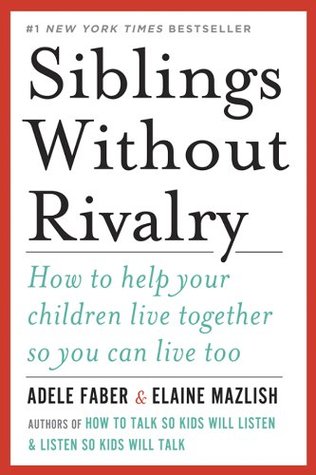More on this book
Community
Kindle Notes & Highlights
by
Adele Faber
Read between
June 1, 2022 - April 8, 2023
“Imagine,” I thought, “a world in which brothers and sisters grow up in homes where hurting isn’t allowed; where children are taught to express their anger at each other sanely and safely; where each child is valued as an individual, not in relation to the others; where cooperation, rather than competition is the norm; where no one is trapped in a role; where children have daily experience and guidance in resolving their differences.
The general consensus was that while punishment might stop the aggressor temporarily, the long-term effect would be to worsen the relationship. The aggressor now has reason to be even more resentful of his sibling, whom he sees as the cause of his punishment. And the victim is now less safe when left alone with his brother.
We suggest that if children are going through a period where there’s constant irritation between them, the parents ought not subject them to “togetherness.” It could only serve to drive them further apart. Instead, it might be better to consider planning different kinds of adult-child combinations:
How did they get me to stop belting my little sisters? They said, “Scott, listen: You do realize that your younger sisters think the world of you. They just admire you so much and they try to impress you with the things they do.” Now that just set me back. So the next time I was ready to belt them I thought, “Well, maybe my parents are right.” And that seemed to calm me down. It stopped me anyway.
If somehow either one of us had been made aware of the great affection and admiration that we each felt for the other, it would have been a big help to both of us.


